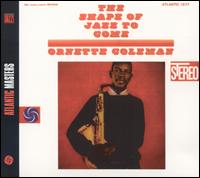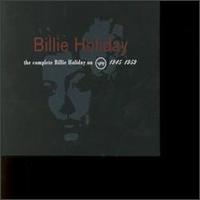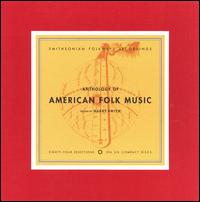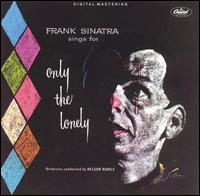Five Album Favorites on the Edge of the Top Ten
Originally, Frank Sinatra had planned to record Only the Lonely with Gordon Jenkins, who had arranged his previous all-ballads album, Where Are You. Jenkins was unavailable at the time of the sessions, which led Sinatra back to his original arranger at Capitol, Nelson Riddle. The result is arguably his greatest ballads album. Only the Lonely follows the same formula as his previous down albums, but the tone is considerably bleaker and more desperate. Riddle used a larger orchestra for the album than he had in the past, which lent the album a stately, nearly classical atmosphere. At its core, however, the album is a set of brooding saloon songs, highlighted by two of Sinatra's tour de forces — "Angel Eyes" and "One for My Baby." Sinatra never forces emotion out of the lyric, he lets everything flow naturally, with grace. It's a heartbreaking record, the ideal late-night album. ~Stephen Thomas Erlewine, All Music Guide
Watch Old Blue Eyes sing "Guess I'll Hang My Tears Out To Dry" at Carnegie Hall in 1980
 The Shape of Jazz to Come / Ornette Coleman
The Shape of Jazz to Come / Ornette ColemanM1366.C65 S53 1980z
Ornette Coleman's Atlantic debut, The Shape of Jazz to Come, was a watershed event in the genesis of avant-garde jazz, profoundly steering its future course and throwing down a gauntlet that some still haven't come to grips with. The record shattered traditional concepts of harmony in jazz, getting rid of not only the piano player but the whole idea of concretely outlined chord changes. The pieces here follow almost no predetermined harmonic structure, which allows Coleman and partner Don Cherry an unprecedented freedom to take the melodies of their solo lines wherever they felt like going in the moment, regardless of what the piece's tonal center had seemed to be. Plus, this was the first time Coleman recorded with a rhythm section — bassist Charlie Haden and drummer Billy Higgins — that was loose and open-eared enough to follow his already controversial conception. Coleman's ideals of freedom in jazz made him a feared radical in some quarters; there was much carping about his music flying off in all directions, with little direct relation to the original theme statements. If only those critics could have known how far out things would get in just a few short years; in hindsight, it's hard to see just what the fuss was about, since this is an accessible, frequently swinging record. It's true that Coleman's piercing, wailing alto squeals and vocalized effects weren't much beholden to conventional technique, and that his themes often followed unpredictable courses, and that the group's improvisations were very free-associative. But at this point, Coleman's desire for freedom was directly related to his sense of melody — which was free-flowing, yes, but still very melodic. Of the individual pieces, the haunting "Lonely Woman" is a stone-cold classic, and "Congeniality" and "Peace" aren't far behind. Any understanding of jazz's avant-garde should begin here. ~Steve Huey, All Music Guide
Listen to "The Music of Ornette Coleman: A Jazz at Lincoln Center Radio with Ed Bradley Featured Program" (requires RealPlayer)
Download RealPlayer here
Listen to excerpts from The Shape of Jazz to Come
 The Complete Billie Holiday on Verve, 1945-1959 / Billie Holiday
The Complete Billie Holiday on Verve, 1945-1959 / Billie HolidayM1630.18.H64 C6 1992
This is a rather incredible collection: ten CDs enclosed in a tight black box that includes every one of the recordings Verve owns of Billie Holiday, not only the many studio recordings of 1952-57 (which feature Lady Day joined by such jazz all-stars as trumpeters Charlie Shavers and Harry "Sweets" Edison, altoist Benny Carter, and the tenors of Flip Phillips, Paul Quinichette and Ben Webster). Also included are prime performances at Jazz at the Philharmonic concerts in 1945-1947, an enjoyable European gig from 1954, her "comeback" Carnegie Hall concert of 1956, Holiday's rather sad final studio album from 1959, and even lengthy tapes from two informal rehearsals. It's a perfect purchase for the true Billie Holiday fanatic. ~Scott Yanow, All Music Guide
Watch Billie Holiday perform "Fine and Mellow" with Lester Young on television's "The Sound of Jazz":
Watch her sing "Farewell to Storyville" with Louis Armstrong:
 2112 / Rush
2112 / RushM1630.18.R87 A12 1976
Whereas Rush's first two releases, their self-titled debut and Fly By Night, helped create a buzz among hard rock fans worldwide, the more progressive third release, Caress of Steel, confused many of their supporters. The band knew it was now or never with their fourth release, and they delivered just in time — 1976's 2112 proved to be their much sought-after commercial breakthrough and remains one of their most popular albums. Instead of choosing between prog rock or heavy rock, both styles are merged together to create an interesting and original approach. The whole entire first side is comprised of the classic title track, which paints a chilling picture of a future world where technology is in control (Peart's lyrics for the piece being influenced by Ayn Rand). Comprised of seven "sections," the track proved that the trio was fast becoming rock's most accomplished instrumentalists. The second side contains shorter selections, such as the Middle Eastern-flavored "A Passage to Bangkok" and the album-closing rocker "Something for Nothing." 2112 is widely considered by Rush fans as their first true "classic" album, the first in a string of similarly high-quality albums. ~Greg Prato, All Music Guide
Synchronizing Dark Side of the Moon and The Wizard of Oz is old news. How about Rush's 2112 and Willy Wonka & the Chocolate Factory?
Here's where he got the idea

Anthology of American Folk Music / edited by Harry Smith
M1629 .A66 1997
M1629 .A66 1997
Originally released in 1952 as a quasi-legal set of three double LPs and reissued several times since (with varying cover art), Anthology of American Folk Music could well be the most influential document of the '50s folk revival. Many of the recordings that appeared on it had languished in obscurity for 20 years, and it proved a revelation to a new group of folkies, from Pete Seeger to John Fahey to Bob Dylan. The man that made the Anthology possible was Harry Smith, a notoriously eccentric musicologist who compiled 84 of his favorite hillbilly, gospel, blues, and Cajun performances from the late '20s and early '30s, dividing each into one of three categories: Ballads, Social Music, and Songs. Smith sequenced the three volumes with a great amount of care, placing songs on the Ballads volume in historical order (not to be confused with chronological order) so as to create an LP that traces the folk tradition, beginning with some of the earliest Childe ballads of the British Isles and ending with several story songs of the early 20th century. The cast of artists includes pioneers in several fields, from the Carter Family and Uncle Dave Macon to Blind Lemon Jefferson, Mississippi John Hurt, and the Alabama Sacred Harp Singers. Many of the most interesting selections on the Anthology, however, are taken from artists even more obscure, such as Clarence Ashley, Bascom Lamar Lunsford, and Buell Kazee. After the Anthology had been out of print for more than a decade, Smithsonian/Folkways reissued the set in a six-disc boxed set, with the original notes of Harry Smith, as well as a separate book of new reminiscences by artists influenced by the original and a wealth of material for use in CD-ROM drives. ~John Bush, All Music Guide
Listen to excerpts from and learn more about the Anthology of American Folk Music box set at the Smithsonian Folkways Web Site
 Only the Lonely
Only the Lonely
0 Comments:
Post a Comment
<< Home